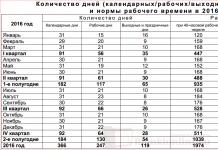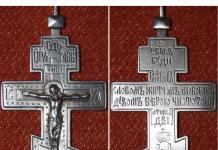All financial transactions are reflected in accounting accounts. This publication will discuss what account 76 “Settlements with various creditors and debtors” is intended for, and what categories it is divided into. The article will provide examples to help you better understand the topic at hand.
Purpose of account 76
Account 76 is an active-passive settlement account. It is necessary in order to summarize information on financial transactions with debtors and creditors that is not included in:
- claims;
- funds withheld from employees' salaries for third parties in accordance with court decisions or executive acts.
In the new chart of accounts, the functions of the account in question, through which the main financial flow is carried out, have significantly expanded. In this regard, it became advisable to open different categories intended for certain types of calculations.
Account 76: subaccounts 1 and 2
Since monetary transactions can be different, accounts payable and accounts receivable are usually divided into several categories. The first (76.1) includes insurance of property and personnel, with the exception of payments for medical and social insurance.
Transfers of funds to an organization are reflected in a debit, and write-offs are reflected in a credit. For example, D76 K73 - insurance compensation due to an employee of the organization according to the contract. D51 K76 - receipt of funds by the organization in accordance with regulations. D99 K76 - write-off of uncompensated insurance claims or damage from a force majeure event.
Subaccount 76.2 reflects calculations for claims that may be presented:
- to suppliers, transport agencies and contractors regarding price discrepancies found, when computational errors are identified after accounting completion, as well as when there is a shortage of cargo (D76 K60);
- to organizations for violation of quality standards, non-compliance with specifications (D76 K60);
- to credit institutions for erroneously written off or transferred amounts on the organization’s accounts;
- for downtime or defects arising from suppliers, contractors (correspondence with Section III of the chart of accounts);
- on fines and penalties for non-compliance with obligations in the contract (correspondence with account 91).
The credit of subaccount 76.2 reflects received payments. If it turns out that the funds are not recoverable, they are treated as a debit.

Account 76: subaccounts 3 and 4
Clause 76.3 controls dividends and other types of income due to the company that do not contradict the partnership agreement. D76 K91 - profit to be received (distributed). D51 K76 - funds received by the organization from debtors.
The fourth subaccount is intended to take into account amounts accrued to employees of the enterprise, but not paid within a certain period due to the non-appearance of recipients. In such cases, the following wiring is performed: D70 K76. When a worker receives money, an entry is made to the debit of account 76.

Application of subaccount 76/3 in practice
The company Oasis LLC has accounts receivable in the amount of RUB 1,350,000. on account 62 “Settlements with customers and buyers”. For certain reasons, before the payment deadline, she transferred for 750,000 rubles. their rights to the company Iceberg LLC, which was able to recover 900,000 rubles against the debt due. In such a situation, several questions arise:
- Are accounts receivable a purchase of property or a financial investment in assets?
- The buyer's asset is RUB 1,350,000. or 750,000 rubles?
- In this case, is the debt of debtors considered income, and 750,000 rubles. - expense of the enterprise Iceberg LLC?
In such a situation, Oasis LLC must make, from a legal point of view, the following transactions:
Debit 91.2 Credit 62 1,350,000 rub. - writing off the right of claim from buyers.
Debit 51 Credit 91.1 RUB 750,000 - compensation received.
Such operations make it possible to record in the “Other income and expenses” accounts the loss of the Oasis enterprise that arose from the assignment of the right of claim. Accountants of the Iceberg company must make a debit entry to account 76.3 to record the debt from counterparties. The difference between the rights received and the costs for them is shown in the credit of accounts 98/1, 83 or 90/1.
Even partial collection of payment leads to mutual agreement of both parties and full repayment of debts. The unpaid portion is reflected in debit and the written-off portion is reflected in 98.1. In the example under consideration it turns out:
Debit RUB 51,900,000.
Debit 98.1 765,000 rub.
Account credit 76 1,350,000 rub.
The Iceberg company spent 750,000 rubles. for the acquisition of rights and returned 900,000 rubles, that is, the profit is 150,000 rubles. The wiring is like this:
Debit 98.1 Credit 91.1 RUB 150,000
The actual amount of profit from the operation is reflected in account 98/1, intended for recording future income.

Subaccount 76.AV “Value added tax on advances and payments”
Account 76.AB allows you to summarize information on calculations for paying VAT from preliminary payments. Accounting is maintained with those customers and buyers from whom money has been received in advance for the planned shipment of goods or for the provision of various types of services.
Business transactions may be different. For example: D68.02 K76.AV - accounting for value added tax on payment received from the client in advance. D 76.AV K68.02 - VAT accrual on funds received in advance from customers. Account 76. AB has the following sub-accounts (analytical characteristics): “Counterparties”, “Invoices”.

Debit correspondence
The account in question (76) by debit can correspond with the following: “Fixed assets” (01), “Equipment for installation” (07), “Income-generating investments in MC” (03), “Investments in non-current assets” (08), “ Intangible assets" (04). From the second section of the chart of accounts, it interacts with the items “Materials” (10), “Animals for growing and fattening” (11), “Procurement and acquisition of MC”.

Account 76 can correspond by debit with all items in the “Production Costs” section, as well as with 41, 45 and 43, in the “Finished Products and Goods” category. Postings are often made with cash accounts: 52, 50, 58, 51, 55, as well as with settlement accounts: 60, 67, 66, 62, 73, 70, 76, 71, 79. In addition, correspondence is carried out on debit with the following ( reflects profits and losses), 91 (records various income and expenses), 90 “Sales”, 97 “Deferred expenses”, 86 “Targeted financing”.
Examples (by debit)
Some examples from the table will help you understand the material presented in the article.
Correspondence | |
The cost of unfinished main production decreased due to debtors and creditors. This may be an accrual of debt to the insurance company due to an event (emergency or force majeure). |
|
Losses from defects are charged to the account for settlements with creditors and debtors. |
|
Receipt of debts to suppliers, according to documents confirming consent to the transfer of funds. |
|
Payment of funds to creditors in cash (from the cash register). |
|
D76 K68-VAT | Identification of budget debt (for VAT) during the determination of revenue for taxation. |
General business expenses are compensated through various debtors and creditors. |
|
Accounting for debts from various debtors for finished products. |
|
The cost of work in progress servicing production decreased due to the transfer of funds to the organization from debtors. |
Loan correspondence
Account 76 can interact with the following categories of the chart of accounts: “Investments in non-current assets”, “Fixed assets”, “Intangible assets”, “Equipment for installation”, “Income investments in MC”. In the “Production Inventories” section, correspondence is carried out with the accounts “Materials”, “Procurement and acquisition of medical supplies”, “Animals for growing and fattening”, “VAT on purchased values”.
Account 76 can also interact on credit with all settlement accounts (except 68, 69, 75, 77) and the “Production Costs” category. From the section “Finished products and goods” - with accounts 52, 50, 51, 44.55, 41, 57, 45, and 58. In addition, correspondence is carried out with most current accounts and, of course, with those that reflect monetary transactions (91, 97, 94, 96, 99).

Examples of business transactions (loans)
The table below with several examples will help you visually familiarize yourself with what account 76 transactions have.
Correspondence | |
Write-off of purchased fixed assets (fixed assets) in the section on accounts payable. |
|
Return of leased property to (occurs in cases where there has been no change of owner based on the agreement). |
|
Write-off of materials regarding accounts payable. |
|
Receiving funds from the client to the current account. |
|
Receipt of debt from buyers based on an agreement. |
|
Debt to various creditors and debtors for general production costs. |
|
Fixing current accounts payable to the lessor (for leasing payments) to reduce long-term liabilities. |
Account balance 76
Novice accountants often ask the question of what account 76 actually is: active or passive? In practice, situations are different, but since it takes into account receivables and payables, the balance can be of two types:
- one-way (debit or credit);
- two-way (simultaneously debit and credit).
This means that the account in question is active-passive. In order to determine the debit balance, all debts from counterparties are summed up. Balance 76 of the loan account reflects all the money that the company is obliged to pay.

Reports on accounts payable and receivable in the 1 C system
A company using the 1C: Enterprise 8 system must maintain a report on the amount of receivables from counterparties. You can get acquainted with the information if, after starting the program, you enter the “Counterparties” section. In the field that opens there is a list of organizations and individual entrepreneurs. Among them there are debtors and creditors. Contact details, invoices and contracts, work schedules - all this can always be viewed. It is from this menu that you can register a new organization that is part of the holding.
Finding out the exact debt of enterprises is not difficult. To do this, go to the “Debt under contracts” section, in the “Output debt” panel, select “Receivable” and set the required date. The user will see a list of all counterparties, from which you can select specific enterprises (with large debts). If there are many organizations and the entire list does not fit on one page, the information can be presented in a visual form. To do this, you will need to go to the “Diagram” section. Work with accounts payable is carried out in a similar way.

That's all you need to know about account 76, which reflects settlement transactions with debtors (creditors). Since the legislation of the Russian Federation is systematically changing, you should regularly use legal reference systems, which always have an up-to-date chart of accounts and PBUs. Then specialists will always be aware of any changes affecting their professional activities and will be able to make the right decisions when maintaining accounting records.
The article will tell you which transactions to write off an advance payment for accounts payable.
Question: After the statute of limitations expired, I included accounts payable in income (entry D 62.02-K 91.01). There was still an advance payment left on account 76.AB, it was written off in the document Formation of a purchase ledger entry (entry D 68.02-K 76.AV). Now there is an error in the VAT return; the report is not sent due to this entry in the purchase books. What now needs to be written off 76.АВ by posting D 91.02 K 76.АВ or what? It turns out that VAT cannot be reduced, although previously it was increased due to prepayment?
Answer: Yes, in this case, reflect the VAT write-off in accounting with the following posting:
– the amount of VAT paid to the budget from the advance payment for which the goods were not shipped is written off.
This order follows from paragraphs , and PBU 10/99.
How to write off bad accounts payable and record them in accounting
If the accounts payable are not repaid by the organization in a timely manner and are not claimed by the creditor, then in accounting they are subject to write-off after the expiration of the limitation period ( clause 7 PBU 9/99 , clause 78 Regulations on accounting and reporting). An exception to this rule is tax debt (fees, penalties, fines). Expiration of the statute of limitations is not a basis for writing off such debt (Appendix to the letter of the Ministry of Finance of Russia dated December 28, 2016 No. 07-04-09/78875).
The amount of written-off accounts payable for which the statute of limitations has expired should be included in other income in the amount in which this debt was reflected in accounting (p. 10.4 PBU 9/99).
In accounting, reflect the write-off of accounts payable by posting:
Debit 60 (62, 66, 67, 70, 71, 76-4) Credit 91-1
– the amount of accounts payable with an expired statute of limitations is written off.
Make this entry in the period in which the statute of limitations for accounts payable expired ( clause 16 PBU 9/99).*
Accounts payable may arise if the organization has not shipped goods (work, services) to the buyer (customer) against the received advance payment. If, after the expiration of the limitation period or for other reasons, such debt is subject to inclusion in non-operating income, the VAT write-off on it has some features.
In accounting, reflect the write-off of VAT by posting:
Debit 91-2 Credit 76 subaccount “Calculations for VAT from advances received”
– the amount of VAT paid to the budget from an advance payment for which goods (work, services) were not shipped (performed, provided) was written off.
This order follows from paragraphs , and PBU 10/99.*
VAT when writing off accounts payable
VAT when writing off accounts payable
When it comes to the need to write off accounts payable, the question always arises of how to deal with VAT. Both parties involved in transactions want to understand: what to do with VAT when writing off accounts payable? In the article we will discuss the most common situations, for example, whether write-off of accounts payable is subject to VAT, and we will present the best options for resolving controversial provisions.
Is it necessary to include VAT when writing off accounts payable?
On the part of the buyer, the tax authorities may consider it unjustified from an economic point of view to include in non-operating expenses the deductible VAT at the time of debt write-off. Literal interpretation of clause 14 clause 1 art. 265 of the Tax Code of the Russian Federation gives an organization the right to such actions with VAT when calculating income tax, but only if such calculation is related to the write-off of accounts payable for capitalized goods (work, services).
But in the private explanations of representatives of the Ministry of Finance of the Russian Federation, one can find a different opinion: the use of this norm will lead to the fact that the company will twice reduce its tax liabilities by the same amount. Namely, the tax base for VAT, taking input tax to be deducted from the budget, and the tax base for income tax, if input VAT is taken into account in expenses. This situation assumes that the introduction of VAT into non-operating expenses will be considered economically unjustified.
When the issue concerns the buyer's receivables, writing them off, it is recommended to restore VAT from the advance received previously. Typically, the client is required to take the following actions: accept VAT from the advance for deduction; restore the previously accepted VAT deduction from the advance payment; deduct VAT on goods (work, services) received. Since we are talking about an expired debt, the goods for the amount of the advance payment will not be issued to the client. This means that the customer will not be able to use a tax deduction on products purchased or work and services performed. Consequently, it is necessary to restore the deductible VAT when writing off receivables from advances due to the expiration of the period of the claim.
Let's discuss another situation: the seller pays VAT on advances received; when the debt becomes hopeless, he has the right to reflect it in income. Tax authorities require that income including VAT be taken into account, but it is risky to write off the same tax as expenses. The Ministry of Finance opposes such actions (letter dated 12/07/12 No. 03-03-06/1/635). Only the court supports a position favorable to enterprises (resolution of the Arbitration Court of the Far Eastern Federal District dated March 4, 2015 No. F03-518/2015).
How is VAT taken into account when writing off accounts payable?
At VAT write-off of accounts payable it is important to act in a certain order .
There are three possible scenarios:
The goods were shipped to the client (work was performed, services were provided), but he did not pay for them, accepting the “input” VAT for deduction.
The goods were shipped to the client (work was performed, services were provided), but no funds were contributed to pay for them, and “input” VAT was not accepted for deduction.
The supplier received an advance payment and calculated VAT on it. There was no shipment of goods.
Now let's talk about all the scenarios in more detail.
VAT when writing off accounts payable from the buyer: “input” VAT is accepted for deduction
So, goods were shipped to the client (work was performed, services were provided), he did not pay for them, but accepted the “input” VAT for deduction. Then, in case of delay, accounts payable are written off. Is there a need to restore deductible VAT on goods, works, and services received in this situation?
In paragraph 3 of Art. 170 of the Tax Code of the Russian Federation provides a closed list of cases when “input” VAT must be restored. The described case is not presented in this list, that is, there is no need to restore tax on debt if it is not claimed.
This position is reflected in the Letter of the Ministry of Finance of the Russian Federation dated June 21, 2013 No. 03-07-11/23503: according to the provisions of paragraph. 2 p. 2 art. 171 and paragraph 1 of Art. 172 of the Tax Code of the Russian Federation, VAT is deducted in any case, and it does not matter whether there was a transfer of funds for goods (work, services), i.e., regardless of whether payment was made or not, the amount of VAT accepted for deduction is restoration are not subject to
The courts also share this opinion (resolutions of the FAS North Caucasus Federal District dated October 28, 2010 No. A53-23525/2010, FAS Far Eastern Federal District dated December 27, 2010 No. F03-8694/2010).

Write-off of overdue accounts payable from the buyer: “input” VAT was not accepted for deduction
The client receives goods (work, services) without paying for them and without accepting “input” VAT for deduction. If the debt is overdue, is it written off with VAT for tax purposes?
It's possible. As stated in paragraph. 14 clause 1 art. 265 of the Tax Code of the Russian Federation, VAT can be fully taken into account in non-operating expenses. This provision notes that taxes on the sale of material and production assets are written off in the reporting period as expired debt under clause 18 of Art. 250 Tax Code of the Russian Federation.
Write-off of overdue accounts payable including VAT from the seller from the advance payment
An advance payment was transferred to the supplier, while they charged “advance” VAT and paid tax to the budget, but the supplier never shipped the goods. In this case, accounts payable will be generated against the supplier as an overdue prepayment with VAT.
To avoid confusion with VAT when writing off accounts payable, the supplier needs to deal with the following problematic situations:
Does he have the right to deduct VAT on prepayments that have expired?
Is there a need to include VAT on prepayments in non-operating income?
Does he have the opportunity to contribute “advance” VAT to non-operating expenses?
1. Acceptance of “advance” VAT for deduction.
After the supplier receives the advance payment, his responsibilities include calculation and payment of VAT (Clause 1 of Article 154 of the Tax Code of the Russian Federation). Moreover, the corresponding tax is deducted:
upon shipment (clause 8 of article 171, clause 6 of article 172 of the Tax Code of the Russian Federation);
in case of a change in cost or termination of the contract with the return of previously received advance payments (clause 5 of Article 171 of the Tax Code of the Russian Federation).
The advance payment does not pass to the buyer when overdue accounts payable for advance payments are written off. Because of this, the seller is deprived of the deduction of “advance” VAT, which is confirmed by letters from the Ministry of Finance of the Russian Federation dated December 7, 2012 No. 03-03-06/1/635, dated February 10, 2010 No. 03-03-06/1/58.
2. Inclusion of “advance” VAT in non-operating income.
Overdue accounts payable are included with VAT in non-operating income (clause 18, part 2, article 250 of the Tax Code of the Russian Federation), that is, VAT is included in income for profit tax.
3. Inclusion of “advance” VAT in non-operating expenses.
The Tax Code of the Russian Federation (Chapter 25) does not allow VAT when writing off accounts payable for prepayment to be attributed to this type of expense when the write-off is associated with delay (Letters of the Ministry of Finance of the Russian Federation dated December 7, 2012 No. 03-03-06/1/635, dated February 10, 2010 No. 03-03-06/1/58).
But one cannot help but say the opposite opinion: accounting for “advance” VAT is allowed in non-operating expenses. The arbitrators in the Resolution of the FAS Moscow District dated March 19, 2012 No. F05-12939/11 noted:
the laws of the Russian Federation do not prohibit the inclusion of “advance” VAT in expenses when writing it off as overdue accounts payable;
clause 7 art. 3 of the Tax Code of the Russian Federation establishes: according to paragraphs. 20 clause 1 art. 265 of the Tax Code of the Russian Federation, a taxpayer can contribute “advance” VAT when writing off accounts payable as non-operating expenses.
But it is worth noting that the presented position will need to be defended in court.
An example of how to reflect in accounting and taxation the write-off of accounts payable with an expired statute of limitations
Alpha LLC uses the accrual method and pays income taxes on a monthly basis. On September 10, 2013, the company was supplied with goods worth 59 thousand rubles. (including VAT - 9 thousand rubles). According to the documents, the payment period was seven banking days, excluding the day of shipment. But the goods were not paid for for three years. Note that the supplier did not make any claims in court, and the company did not try to get rid of the debt.
After conducting an inventory, which took place on September 24, 2016, the manager decided to write off overdue accounts payable on the basis of an accounting certificate and an order from the manager.
The following entries were made in Alpha's accounting records:
Debit 10 Credit 60
50,000 rub. - materials have been capitalized.
Debit 19 Credit 60
9000 rub. - input VAT is reflected.
Debit 68 subaccount “VAT calculations” Credit 19
9000 rub. - input VAT is accepted for deduction.
Debit 60 Credit 91-1
59,000 rub. - overdue accounts payable are written off.
When calculating income tax for September 2016, the company’s accountant contributed 59 thousand rubles. included in income. And input VAT, previously accepted for deduction in the amount of 9 thousand rubles, was not taken into account in expenses (clause 49 of article 270, clause 1 of article 252 of the Tax Code of the Russian Federation).
The reasons for the formation of accounts payable are as follows: the company did not transfer the goods (did not provide work, services) to the client after making an advance payment, the statute of limitations has expired, or there are other reasons. At the same time, accounts payable are included in non-operating income; it is also necessary to take into account a number of subtleties in the case of writing off VAT on it.
In accounting, reflect the write-off of VAT by posting:
Debit 91-2 Credit 76 subaccount “Calculations for VAT from advances received”
VAT paid to the state on prepayment for which goods (work, services) were not provided has been written off.
The procedure is described in clauses 11, 16 and 18 of PBU 10/99.
There is no need to accrue or pay VAT when writing off accounts payable for an unprocessed advance made on account of transactions exempt from taxation, that is, subject to VAT at a rate of 0% (letter of the Ministry of Finance of the Russian Federation dated July 20, 2010 No. 03-07-08/208) .
How is overdue accounts payable (VAT) written off?
To write off, you need to recognize the accounts payable as overdue. According to Art. 196 of the Civil Code of the Russian Federation, the general statute of limitations is three years.
Important! It is necessary to restart the countdown of the statute of limitations when mutual claims are confirmed. The basis for this is considered to be an act of reconciliation of calculations, signed by the parties.
After this period, the following papers are prepared for write-off:
act of carrying out a debt inventory;
the manager’s order to carry out this action;
accounting certificate as a basis.
Write-off of accounts payable with an expired statute of limitations is carried out in the reporting period corresponding to this period. Please note that the write-off is processed on the last day of this reporting period.
If the inventory showed that accounts payable should have been written off earlier, an updated VAT return is submitted. If this rule is not followed, if the debt is revealed during an audit, this fact may be considered an understatement of the tax base, which will be followed by a fine under Art. 122 of the Tax Code of the Russian Federation.
Write-off of accounts payable VAT: postings
Actions with VAT when writing off accounts payable depend on the type of accounting reflecting the write-off: tax or accounting. In accounting, VAT is always written off as an expense.
Let's discuss standard transactions when writing off overdue accounts payable for the buyer (with and without VAT deduction) and the seller.
When the buyer needs to write off such a debt, and the right to deduct VAT has already been used, the following must be done:
direct acquisition of inventory items is reflected by posting: Dt 10 Kt 60;
accept it for deduction: Dt 68 Kt 19;
when the debt is considered overdue, it is necessary to make an entry: Dt 60 Kt 91.1.
Let us remind you that VAT accepted for deduction is not restored.
Now let’s say that the buyer writes off accounts payable, but he did not deduct VAT. The posting will be similar to the previous situation, however, the posting for accepting tax for deduction will not be displayed. VAT not accepted for deduction must be attributed to expenses: Dt 91 Kt 19.
When writing off overdue accounts payable, taking into account VAT calculated from the prepayment from the seller, it is necessary to reflect the fact of receipt of the advance: Dt 51 Kt 62, and then charge tax on it: Dt 76 Kt 68.
When accounts payable are recognized as overdue, the write-off occurs without taking into account VAT: Dt 62 Kt 91.
VAT on prepayment is included in expenses: Dt 91 Kt 76.
Let us remind you that a decrease in the income tax base by the amount of VAT may serve as a reason for filing claims by representatives of the tax inspectorate.
What to remember when writing off accounts payable
The buyer should be aware that:
when “input” VAT is accepted for deduction, VAT restoration is not required when writing off accounts payable;
when this tax is not accepted for deduction, it is included in non-operating expenses along with accounts payable.
The seller must:
do not deduct “advance” VAT when writing off accounts payable for the prepayment amount;
do not exclude VAT from overdue debt when it is included in non-operating income;
do not include VAT on prepayment in non-operating expenses when writing off debt - this will subsequently require disputes with inspectors.
If you are ready for this, you can enter the tax in this column.
If you still have questions on the topic, we offer you a free consultation with specialists from the Business Resource company.
Why dozens of St. Petersburg companies chose the services of Business Resource:
Cost savings - up to 30% (compared to an in-house accountant).
The company supports a unified 1C service standard.
The company provides comprehensive accounting services, including document automation and tax optimization.
Calculate how much it costs your company monthly to maintain a full-time/part-time accountant, and be sure to call them.


























